On-demand fuel delivery app is a rapidly emerging area that is upending the current corporate landscape. The mobile gas distribution sector is poised for continuous expansion due to its ease of use and really novel methodology. These applications have transformed the worldwide delivery industry by instantly putting virtually any items or services in our fingers.
According to Harvard Business Review, the on-demand business economy attracts around 22.4 million users yearly. It also brings in $57.6 billion in spending. As a result of such a profitable potential, many aspiring entrepreneurs aim to create unique concepts that connect customers with products or services while delivering ease.
The creation of an on-demand fuel delivery app is one such smart idea. Let us see how…?
What is the On-Demand Fuel Delivery App?
On-demand fuel delivery applications assist users in having their vehicle’s tank replenished with the fuel they desire at their desired time and location. Users may quickly get fuel delivered by just registering and logging in to the app and entering the fuel quantity, type, time, and location.
The software eliminates the need for users to visit and stand in long lines at gas stations, allowing them to make better use of their time for productive work. The applications may fill the vehicle’s tank anywhere, including a parking lot, at home, or any other site with a precise GPS position. The fuel delivery software will come in handy for those who are caught midway in a remote spot with an empty fuel tank.
How Does an On-Demand Fuel Delivery App Work?
Oil and gas delivery applications function similarly to Uber for fuel. The procedure is divided into three steps:

Step 1 Registration
To begin, the user must create an on-demand fuel delivery app account by providing a telephone number, email address, password, and other information. Customers can also complete their registration by logging in with their social networking plugin.
Step 2 Placing an order
Following registration, the subsequent step is to place an order. The fuel details and brand must be entered here by the user. They can also get real-time delivery information for fuel. You may also offer your clients a range of payment options.
Step 3 Order Completion
When a customer orders, the fuel delivery company allocates it to a driver in the area. The driver will then make the delivery. He might get the specific address using the on-demand fuel delivery app’s real-time tracking feature.
How Can You Create Your Own Delivery App for Fuel Delivery?
Developing an on-demand fuel delivery business idea into a full-fledged service is difficult for the faint of heart. Following our guide to app development might be beneficial since the development process is planned with a well-researched, well-thought-out strategy to be ready after extensive investigation.
Here is the app development method you can use to get started with your on-demand fuel delivery services:
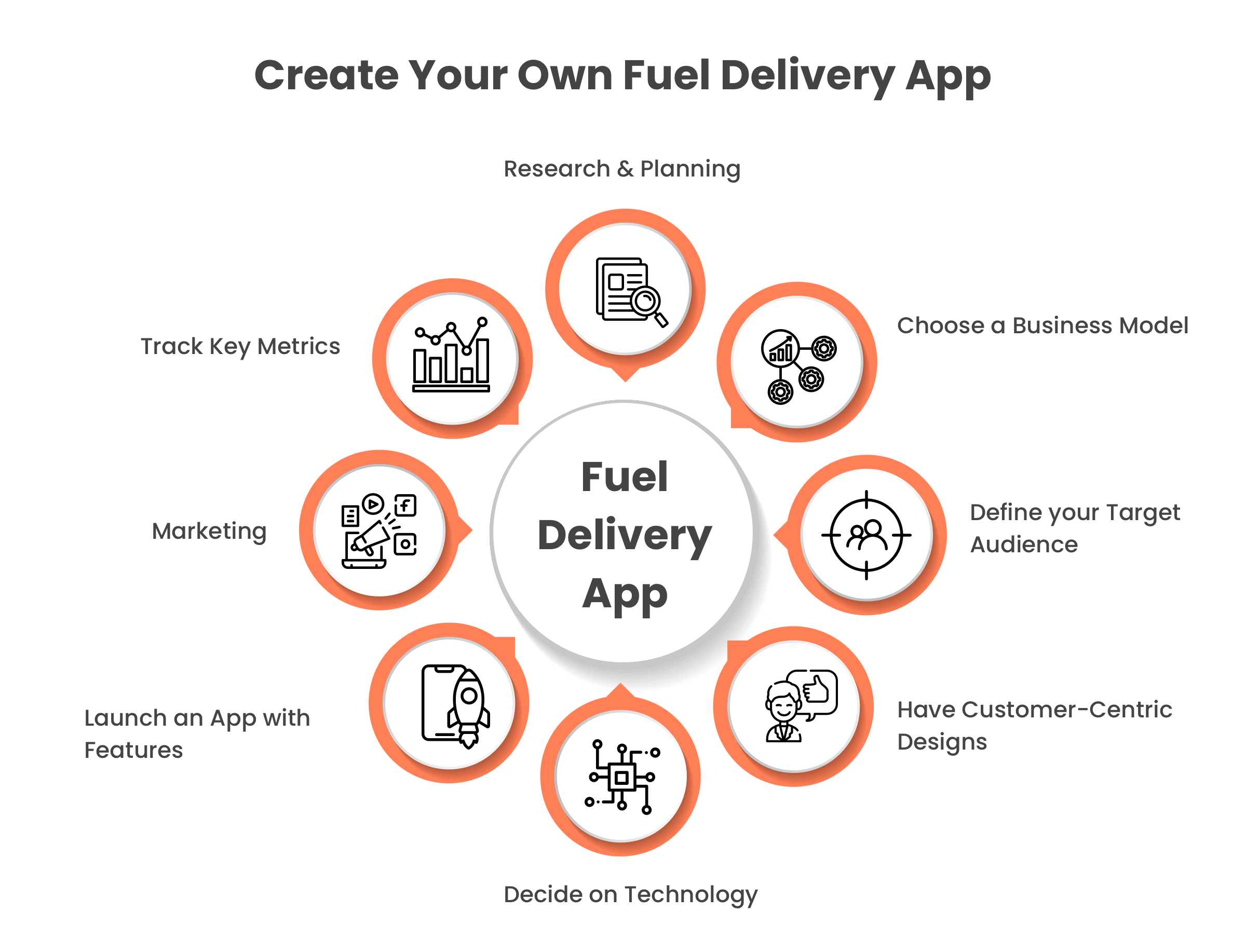
1. Research & Planning
You must invest extensively in research to fully comprehend your market and users. After extensive research, the next stage is creating an app plan. You must research and plan your target audience, features, and so on, which will help you expedite the development process and have a general notion of the problem you are attempting to tackle.
2. Choose a Business Model
Choosing a suitable model to launch an on-demand service app is critical to its success. That is why you must select it with caution. You can choose between the two on-demand fuel delivery app business concepts:
- Aggregators of fuel delivery services connecting fuel delivery companies or distributors with end-users.
- Services for fuel supply to assist fuel companies in making fuel deliveries.
3. Define your Target Audience
Following the study and development of a gasoline delivery business plan, the essential step is to define the target demographic to better understand your users’ personas and who will be utilizing your product. Considering your target audience ultimately allows you to create features that meet their demands. A thorough understanding of the user base will simplify the development process and offer you a suitable solution.
4. Have Customer-Centric Designs
A well-designed on-demand fuel delivery app makes navigating and learning rapidly easier for users. This allows you to keep customers on your application for an extended period. Furthermore, the color palette has a significant influence on attracting your customers’ attention. Remember to choose colors that reflect your company’s culture or how your users will remember and identify your application. Another factor to consider is design elements that make it simple for users to complete each activity and browse your application.
5. Decide on Technology
Choosing a technological stack is critical since it determines how safe, resilient, scalable, and engaging your application will be. You must decide if you want to use native or hybrid app development while selecting the correct technological stack.
6. Launch an App With Features
Create an app with the most comprehensive collection of functionalities for your revenue plan under the guidance of a delivery app development company. Your app should comprise the following features:
- Android and Apple platform
- IoT-integrated smart locks
- GPS and Google Maps for Navigation
- Analytics Tracker
Read Also – Benefits of Launching an On-Demand Pick-Up and Delivery Mobile App
7. Marketing
The next stage is to sell your service and acquire new customers. Begin the advertising campaign even before the final phases of application development are completed. This will help you not only build a community of early adopters around your software but also test it for user approval once they provide input. Keep continuing with your marketing efforts to enhance your customer base.
8. Track Key Metrics
Using big data to improve your service quality continually will set you apart from the competition. You can monitor gasoline amount, quality, and carrier temperature as it is delivered to the client. Remember to use IoT to monitor these parameters.
Let’s Get Started!
On-demand fuel delivery services greatly influence the modern oil and gas business by providing an exceptional customer experience. In the following years, more gas delivery firms are expected to serve more corporate clients and individuals.
However, the intricate infrastructure of an on-demand gasoline delivery service necessitates the development of robust apps with a strong tech stack and intelligent architecture. Developing an on-demand fuel app that actually caters to customers will offer you an advantage.
Frequently Asked Questions (FAQs)
Q1. How to monetize your on-demand fuel delivery app?
While the principal source of revenue for your on-demand fuel delivery app is the delivery fee, you can also offer a membership or an annual subscription plan for unlimited fuel delivery.
Q2. What are the challenges faced by on-demand fuel delivery apps?
The on-demand fuel delivery app is prone to various issues, including:
- Legal Issues
- Modern Infrastructure
- Fleet Management
- Safety Concerns
Q3. How much will creating an app for on-demand fuel delivery cost?
Based on the related parameters, developing an on-demand app will cost between $13,000 and $25,000.

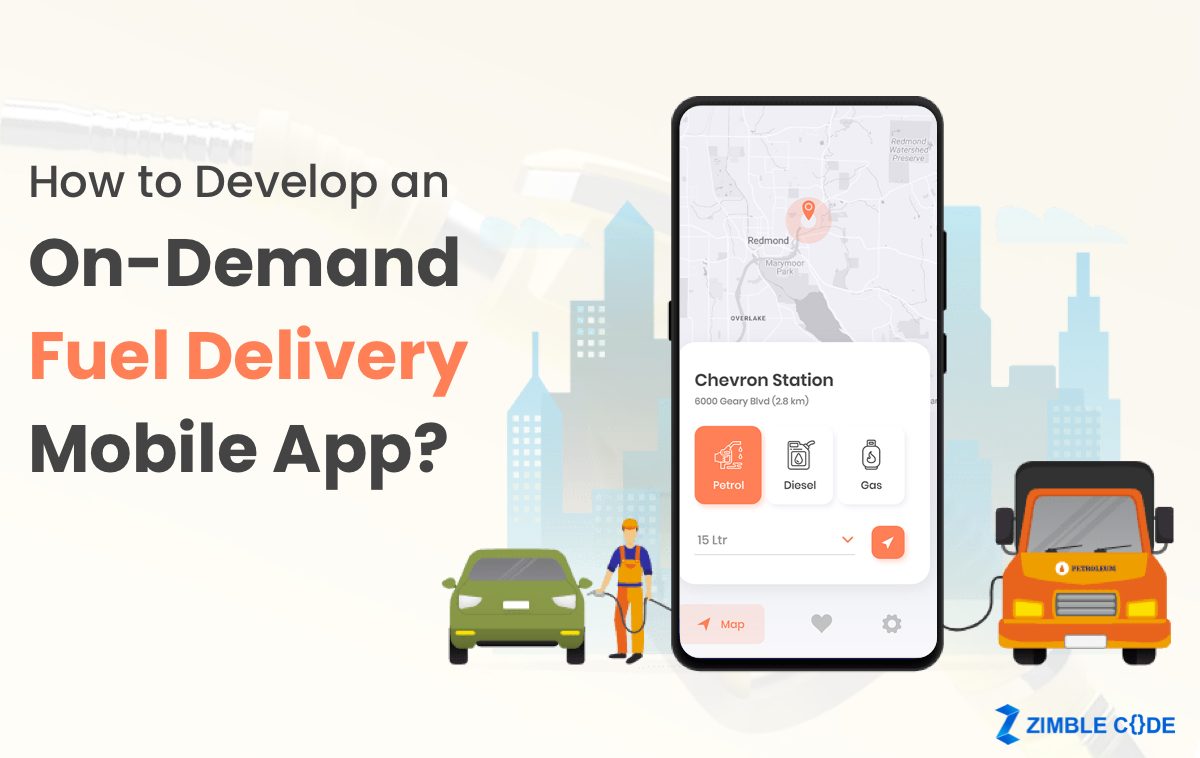
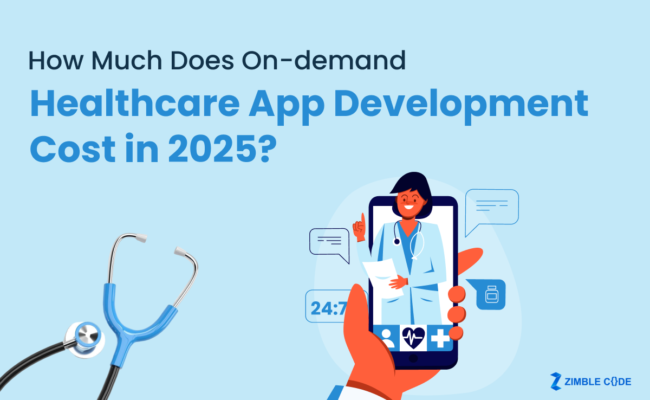
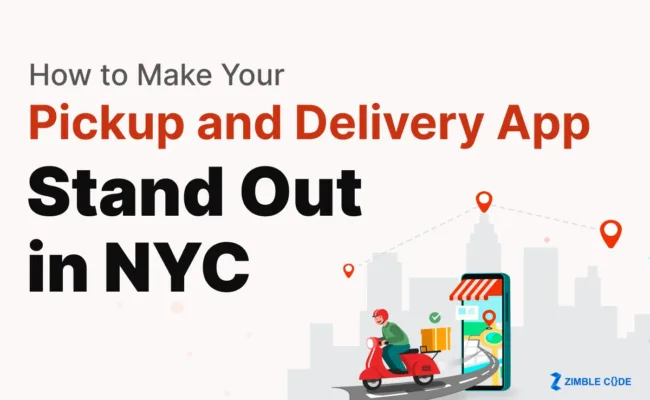
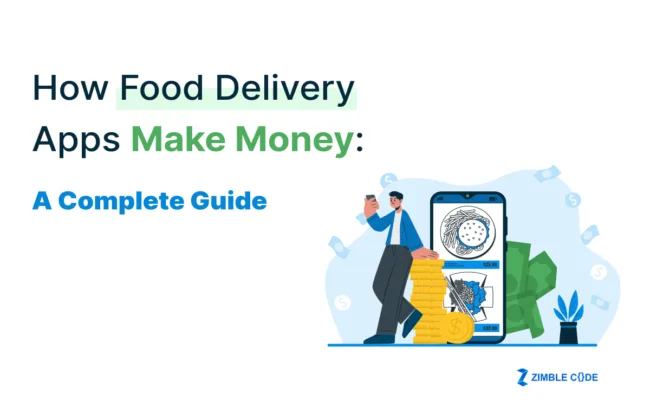
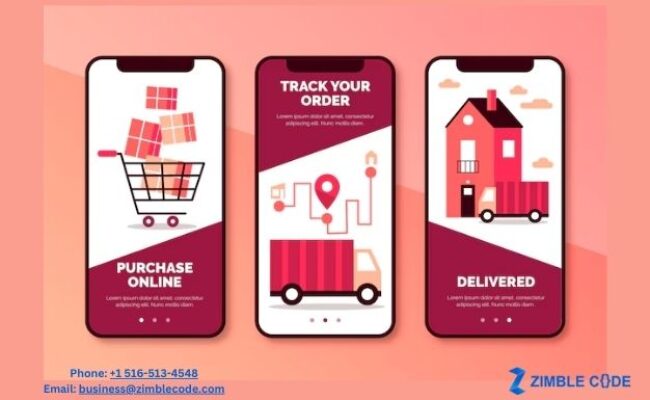
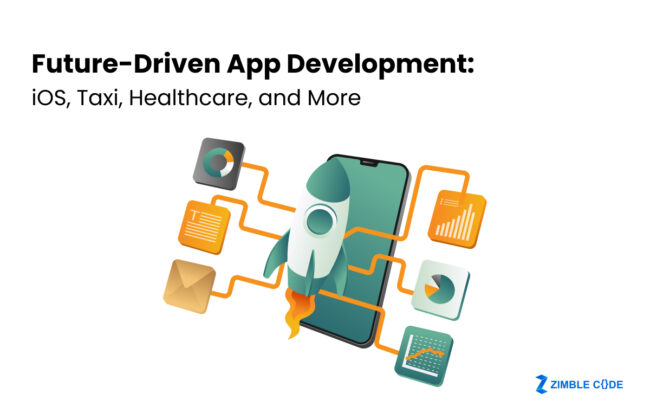

Leave A Comment